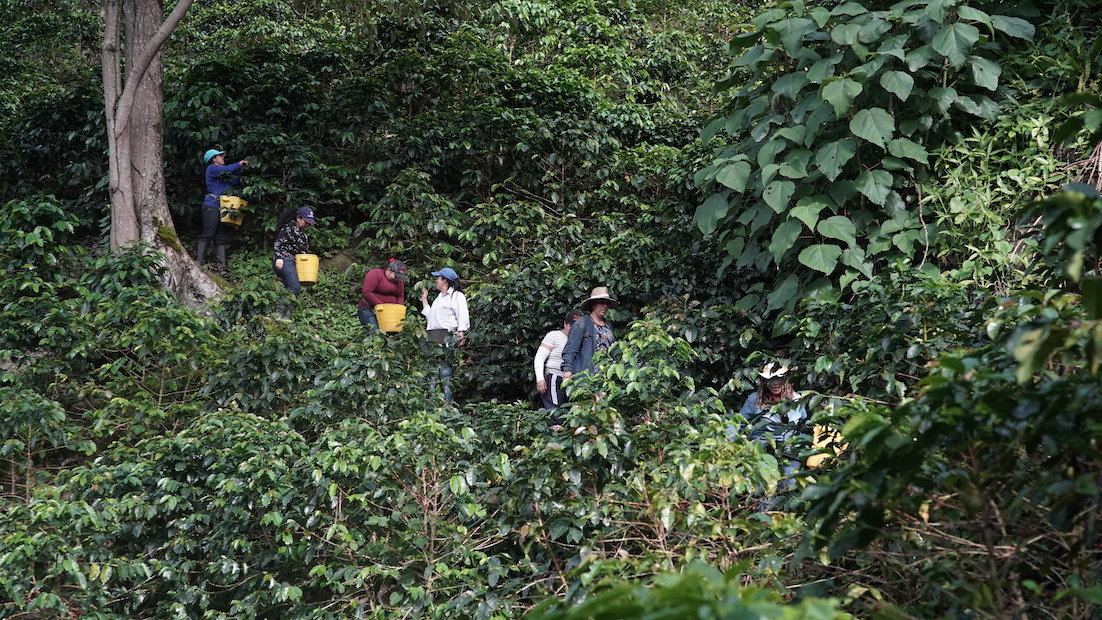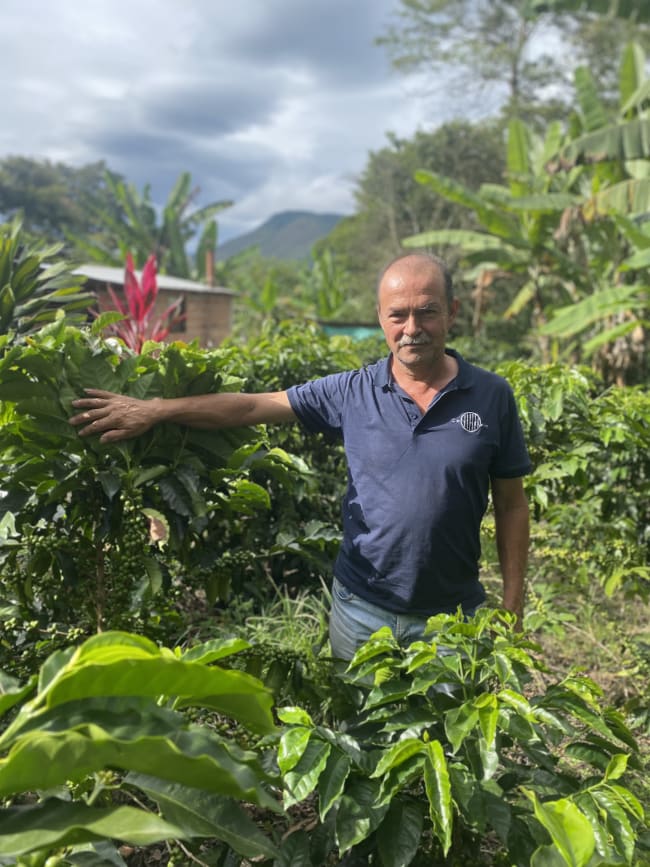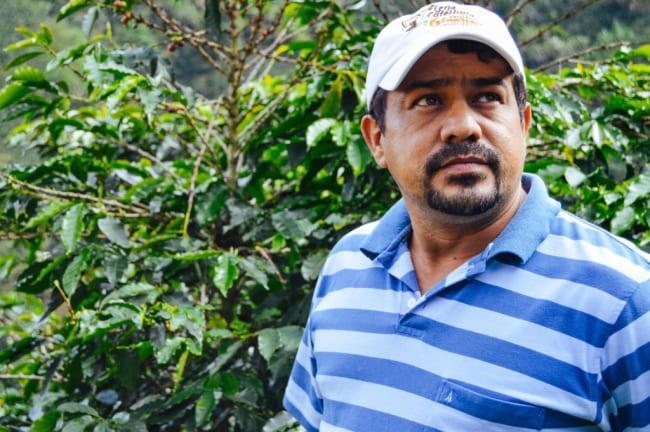Remember Epiphanie? She’s the Pact Coffee favourite who overcame adversity to be the first woman to own a washing station - and her children have followed in her footsteps.
We talked to Sam, her son and Manager Director of Bufcoffee. He’s done some incredible work to make Bufcoffee the powerhouse cooperative it is today - but let’s hear about it from him:
Tell us about Bufcoffee, and how many farmers your washing stations serve
We have four washing stations: Umurage, Nyarusiza, Ubumwe and Remera. In Rwanda, things are done differently to other coffee growing countries. Farmers grow small amounts of cherries that are bought by washing stations, like ours, and processed there.
At the moment, we buy coffee from roughy 12,000 farmers - but those numbers are less than before. Government regulations say that washing stations can only buy coffee cherries in specific districts, and three years ago reduced the surrounding area that’s covered.
That could have been to increase competitiveness so no-one can have a monopoly, as it means more washing stations are required, but also means farmers don’t need to travel as far.
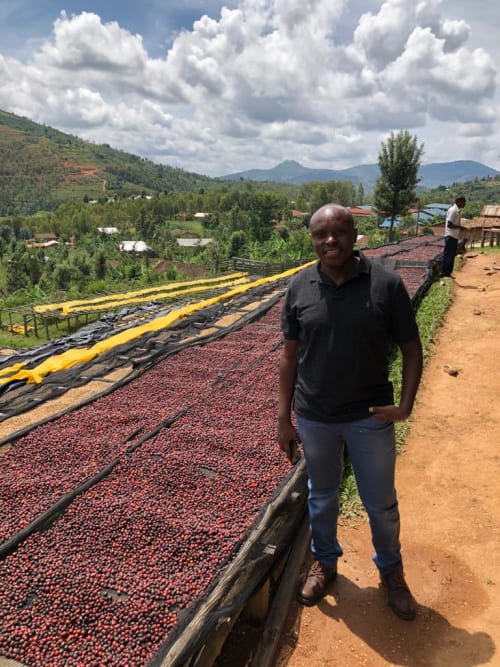
What changes have you made since starting to work for your mum?
There is a lot of competition between washing stations in Rwanda. That means we keep having to try and create new, more tasty cup profiles. The first step was starting to sort cherries more carefully, for more clarity in the taste.
Now we do a lot of experiments around fermentation. A lot of those involve natural processing - and we were the first to export natural coffee from Rwanda, since the ban on their export* was lifted in 2011.
It takes a lot of time to put the results of these experiments into practice. We’re trying fermentation times of up to five days, and after this the cherries have to dry for two-to-three weeks. By the time we’ve cupped the results, harvest season is over and we have to wait until next year. But slowly, quality gets better and the prices we can pay get higher too.
How has coronavirus impacted life on the washing stations?
In Rwanda, We are following social distancing and hand-washing protocols to stop the spread of the virus. On the washing stations we’re encouraging farmers coming to sell their cherries to wash their hands and socially distance too. We’re also paying them using Mobo [a money transfer app] instead of with cash - and the government has removed transfer fees to encourage this, which helps.
For the women who sort the cherries for ripeness and defects, they’ve changed how they work. Normally it’s side by side on a big dry bed, but now they each have a pile of cherries to work through - one metre from each other. It takes away from the social, singing atmosphere as they have to wear masks too, but it’s important to stay safe.
For cherry harvesting, normally two to three people will focus on one tree. Now they’re working on one tree each, to stay distant.
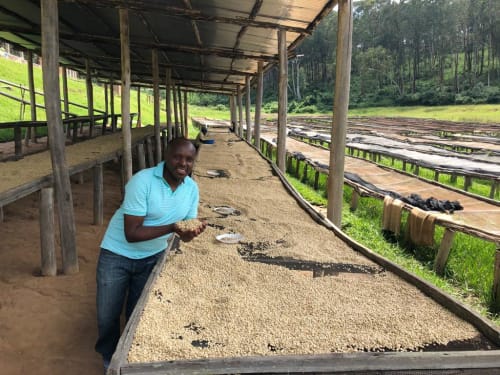
Tell us about your next big project
Pact Coffee is gifting 34 cows to local farmers we buy from, to provide fertiliser for their farms and nutrition for their families. We’ve finished the training needed - teaching the farmers how to own a cow, how much and what to feed them, what shelter they need, and how to look out for medical issues until a vet can visit. We’ll provide access to a vet.
It would have been time to distribute the cows, if it wasn’t for coronavirus. So now we need to wait two weeks, and then we can give them out.
*The Rwandan government banned export of naturally processed coffee in the early 2000s. In most of the world, natural coffee was considered to be low quality and less is paid for it - it was even thought to be ‘dirty’ (hence why washed coffee is often called ‘clean’).
Rwanda wanted the reputation of producing high quality coffee, but also wanted to guarantee high prices paid for it - it was better for the country’s GDP that way. Now, however, speciality coffee has led to a change in perception - thanks to the production of some top quality naturals.



